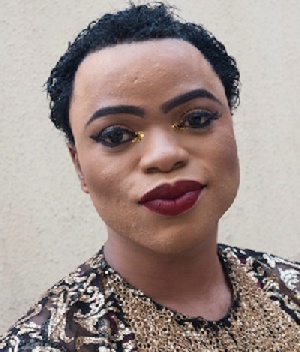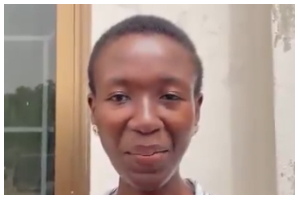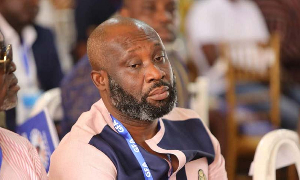A cross-dressing social media star dubbed “Africa’s male Barbie” has shot to fame in Nigeria, sparking a charged debate in a conservative country where alternative lifestyles remain frowned upon.
Okuneye Idris Olarenwaju, who goes by the name Bobrisky on SnapChat, makes his living selling 100,000 naira ($317) skin-whitening creams while chronicling online his life of luxury in Lagos.
But Bobrisky really went viral in late October, when an aide to President Muhammadu Buhari and a marketing executive pulled out of appearing with him on a social media panel in Abuja, the nation’s capital.
“The inclusion of Bobrisky unfortunately sensationalises and radicalises what should otherwise be a serious discourse on new approaches to media engagement,” said Alder Consulting, whose social media executive withdrew.
Meanwhile, Buhari’s social media aide Bashir Ahmad said he would be “unavailable for the event”.
Embracing the mantra of every successful reality star — there’s no such thing as bad publicity — Bobrisky went ahead with the talk.
“The organisers invited me to speak on the fact that people are talking about Bobrisky,” the 25-year-old told AFP, characteristically referring to himself in the third person.
“Them withdrawing wasn’t nice. In Nigeria, the majority of people here judge you so fast,” added who recounts Bobrisky, online how his lifestyle is funded by a rich, mystery man he refers to only as “bae.”
“We are in this life once, people should be given the freedom to express themselves.” – Rebellious
In the wake of the scandal, Bobrisky has earned himself a reputation for being a rebel. It’s a dangerous reputation in a country where in 2014, former president Goodluck Jonathan signed the same-sex marriage prohibition bill, forbidding not only marriage, but same-sex cohabitation and any “public show of same-sex amorous relationship” with penalties ranging from 10 to 14 years in prison.
But Bobrisky, who gets over 150,000 views on each video he posts, insisted his appeal isn’t because he’s a civil rights crusader. “People love the fact that I’m real,” he said, speaking at his apartment in Lekki, an upmarket suburb in Nigeria’s commercial hub.
“It’s about the way I dance, because I’m a very good dancer, and my makeup.” Bobrisky has a slight build, with a close crop of black hair he wears in gelled curls. He’s wearing red sweatpants with a Mickey Mouse cartoon embroidered near a pocket and a hot pink mesh tank top, as he gets ready for a night out in his small living room, decorated with gold and black wallpaper and a crystal chandelier.
“I’m doing a party look, a diva look,” he said as he applies the first out of many layers of foundation, explaining that he was 12 when he first experimented with makeup. “I liked my mom’s look,” he said with a demure smile.
He finishes his makeup by gluing gold glitter on the inside corner of his eyes near the tear ducts, the sparkling beginning of a swooping cat eye even Cleopatra would envy.
“Beauty is pain,” he said, wincing as he applies the chemical glue, “but this is the one that holds the glitter on the longest.”
Bobrisky is the exception in Nigeria. Although no one has yet been charged under the 2014 same-sex marriage law, it has led to “real fear and abuse”, said Wendy Isaack, a researcher with Human Rights Watch, who wrote an October report on the issue.
“It created opportunities for the police and members of the public to engage in extortion and get money from people they believe to be LGBT (lesbian, gay, bisexual, and transgender),” Isaack said.
“If you pass a law that leads to violence with impunity, you’re creating a situation where there’s lack of respect for rule of law in Nigeria, and that’s not helpful,” Isaack said.
Still, Bobrisky says he “doesn’t bother” with the haters and instead is focusing on launching a YouTube channel where he’ll do makeup tutorials.
It’s exactly that born-this-way defiance that endears him to fans. “He doesn’t have to take on a leadership role,” said Olumide Femi Makanjuola, deputy director of The Initiative for Equal Rights, a Nigeria-based non-profit organization advocating for LGBT rights.
“People like Bobrisky are creating the conversation. They didn’t start out to be an activist, but it happened. That’s one of the powerful things of pop culture.” Transvestites are almost non-existent in Nigeria, while gays are regularly the victims of violence.
Entertainment of Wednesday, 23 November 2016
Source: vanguardngr.com













